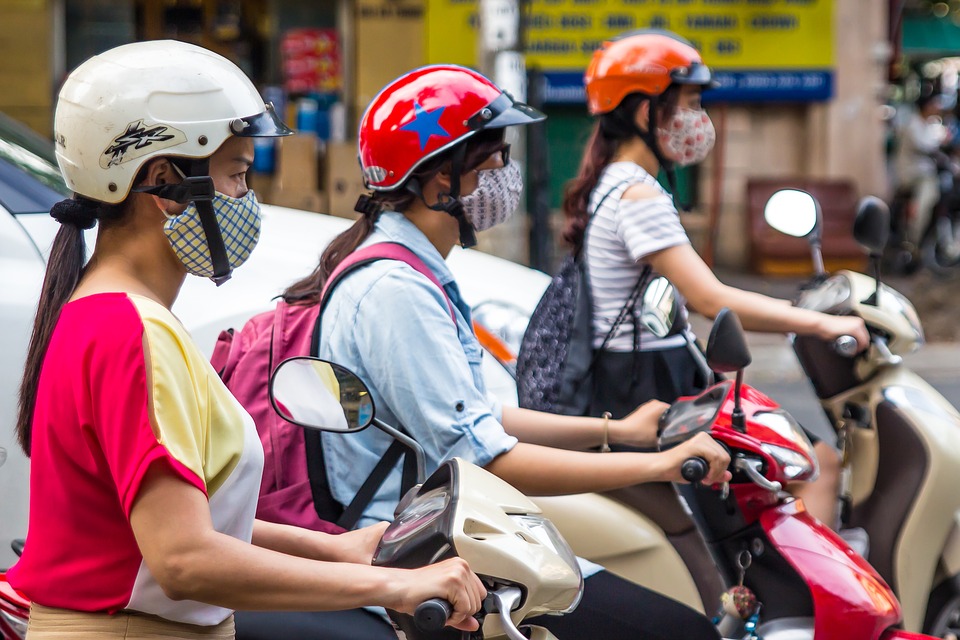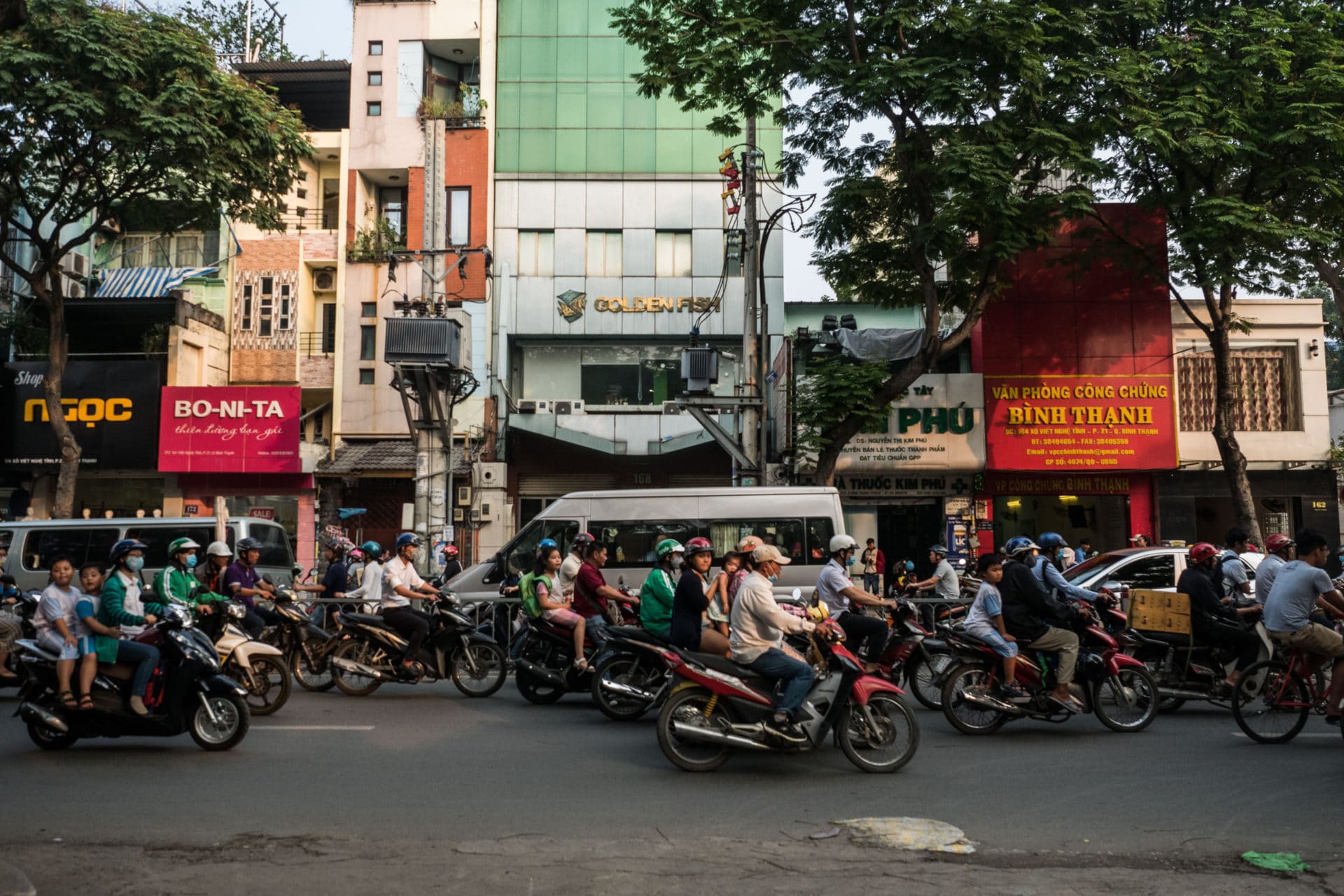Vietnam (Hanoi)
Helmets are an effective ‘vaccine’ against head injuries on the road. In Vietnam, these helmets are made by people with disabilities who have been injured in traffic-related accidents and are are donated to school children.
In Vietnam, 2,150 children lose their lives each year on the country’s roads. Intersections transform into free-for-alls of motorcycles packed tightly between cars and trucks. Sidewalks turn into freeways, as motorcyclists mount curbs and weave their way through pedestrians and shocked tourists.
Back in the 1990s the number of registered motorcycles in Vietnam grew from half a million to 7 million, with 8,000 traffic deaths occurring each year. Now, there are currently 45 million registered motorcycles with 14,000 yearly traffic deaths, 59% of which are motorcyclists according to the World Health Organization and the Ministry of Transport.
Though tragic, these numbers tell a success story, and can be attributed in part to the Asia Injury Prevention Foundation (AIP) along with Protec, a social enterprise dedicated to providing quality motorcycle helmets that are affordable, suited to the tropical climate, and in line with national safety standards. Both were founded by American social entrepreneur Greig Craft in 1999. Today, Protec employs more than 130 staff members, more than one-third of whom are physically disabled, including those picked up in traffic-related accidents.

Assembly lines are physically lower to accommodate the needs of disabled employees with wheelchairs, which has allowed Protec to maintain its diverse workforce while producing quality helmets. The proceeds from the helmet sales are re-invested into AIP Foundation’s public awareness campaigns and road safety education initiatives.
Hoang Na Huong is the general director of Protec, which remains one of the few factories producing safe, affordable and environmentally–compatible helmets for road users in Vietnam and Southeast Asia.
“No one really knew what helmets were for back then,” she says. “When Protec was started it became like a vaccine for brain damage. At that time there were helmet laws but no enforcement.”
Protec sells helmets to the AIP Foundation at material cost, which are then donated to school children, alongside interactive learning sessions. Since 2000, over 450,000 helmets have gone to the AIP Foundation. Protec also helps to fund public awareness campaigns, through the AIP Foundation, on TV, radio and other multimedia outlets.

Vietnam is well-known for selling large quantities of imitation goods, and this includes helmets. These are not tested, have no standards in terms of production, and are not reliable in an accident. Hoang Na Huong notes that one of the challenges in marketing Protec helmets is trying to compete with cheap knock-offs, and getting people to understand the difference amidst the plethora of regularly used, fake products.
“Our country struggles with so many fake products: milk, medicine, antibiotics. It is so dangerous for our people. Caring about our products and ethics are important.”
The Protec factory is unique in that it provides an assembly line at a height accessible to people in wheelchairs. Vietnam in general is not a disability-friendly country. Hoang Na Huong says that most places don’t provide wheelchair access, and that life and finding work can be extremely difficult for people in this situation.
In Vietnam, it’s been mandatory for all motorcyclists and passengers to wear a helmet while on the road since 2007. One year later, in combination with the AIP Foundation’s ‘Wear a helmet, there are no excuses’ campaign, traffic deaths dropped by 12% and traumatic brain injuries by 24%, according to the AIP Foundation. Since then, traffic safety has continued to improve, but Hoang Na Huong says there is still a long way to go.
“Traffic safety is changing, but it requires complex collaboration between many different agencies and organisations.”

The AIP Foundation and Protec are two parts of a solution to motorcycle-related accidents. The idea is to not only provide physical protection, but to educate generations of Vietnamese children so that safety measures become ingrained in society as a necessity for anyone who operates a motorcycle on the road.
“We aren’t just a commercial company that sells helmets. We really want people to think about wearing them to protect themselves, and not just to avoid fines from the police.”
AtlasAction: You can make a donation, become a partner or stay connected here to support the AIP Foundation and Protec.
Project leader
Greig Craft, Founder and Hoang Na Huong, General Director
Support the Atlas
We want the Atlas of the Future media platform and our event to be available to everybody, everywhere for free – always. Fancy helping us spread stories of hope and optimism to create a better tomorrow? For those able, we'd be grateful for any donation.
- Please support the Atlas here
- Thank you!

Photographs: Lauren DeCicca




